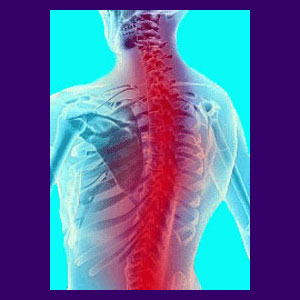
Back pain rehabilitation is an important part of the recovery process. Many patients who have suffered serious injury or extended periods of incapacitating back ache require professional assistance in their rehabilitation efforts. Luckily, physical therapists are well trained and capable of getting them back to a normal lifestyle after recovering from chronic symptoms, spinal surgery or back injury.
In order to fully recover, a patient must also emotionally and psychologically accept that they are healed. If the patient continues to have fear of a recurrence of symptoms or feels they now have limited physical functionality, there is an excellent chance that pain will once again come knocking.
This essay provides tips on recovering fully from a chronic back pain problem.
Back Pain Rehabilitation Methods
It is important for patients who have been disabled by back pain to learn how to function completely again. Patients making a full recovery often simply need guidance and supervision in order to journey back towards a physically active life.
Patients who have scar tissue, remaining pain or permanent neurological damage might have to re-learn how to function with their new limitations.
Either way, a professional therapist is recommended to provide knowledge and confidence for the potentially fearful recovering patient. The therapist should also act as a source of emotional support as the patient works to regain lost anatomical ability.
Rehabilitation for Back Pain Recovery
Back exercises and stretches are important parts of a physical rehabilitation program. The affected area needs to be strengthened and the entire body needs to become accustomed to moving around again. A combination of targeted back exercises, general fitness routines and cardiovascular activities usually produce optimal results.
Proper diet is often a critical factor in getting an obese or out of shape patient back to good health. Learning to eat right and integrate nutritional components which may be useful for recovery or pain prevention is always helpful.
Finally, knowledge therapy is a great addition to a recovery plan, since it will cancel any diagnostic nocebo effects suffered during treatment and prevent future episodes of psychosomatic back pain. It is crucial to remember that even in cases of purely physical injury, the mind can worsen or perpetuate pain due to stress and unresolved emotional factors. This process is often called psychological overlay.
Back Pain Rehabilitation Suggestions
Learning how to live a physically active life is a big challenge for many patients. Some patients suffer from fear of a symptomatic recurrence and must take small steps towards recovery. This is where a combination of healthcare provider and knowledge therapy will be most effective. The patient will become rehabilitated physically and mentally and will be far less likely to suffer serious back pain again in the future. After all, a healthy body depends on a healthy mind.
To learn more about ways to improve your chances of beating symptoms and staying pain-free, talk to your physical therapist. Consider keeping their teachings as part of your lifestyle once you feel completely better.
Although exercise is vital for proper rehabilitation, it is also needed to maintain a healthy body once you are in optimal health. Let your rehab experience set the stage for a whole new lease on wellbeing by keeping up with activity, diet and positivity. Just remember, it is impossible to fully recuperate if you demonstrate a physicophobia condition.
Back Pain > Recovering from Back Pain > Back Pain Rehabilitation





